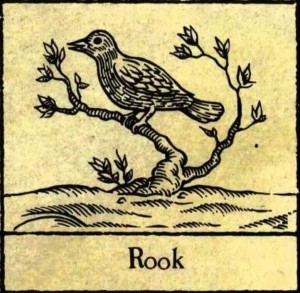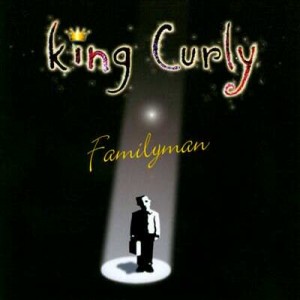Songs That Stop You In Your Tracks

Songs that stop you in your tracks.
Musycks Musings & Topical Tips 14
A weekly column by Inside Songwriting contributor, Michael J Roberts.
Every now and then you may experience that magic moment when you hear a song that stops you in your tracks and transfixed, you are transported to some other mystical realm. Now given that I’ve been listening avidly to popular music since the mid ‘70s it is not surprising that I’ve experienced it a few times, but even so, it would represent a tiny fraction of the total songs I‘ve encountered upon the journey. So, what makes time stand still on those rare occasions where the universe conspires to randomly bring all he ingredients necessary for a sublime moment? Is there a commonality in the songs that have triggered that reaction in me, and maybe in others? Am I alone in this? I doubt it, but I thought I might share a few memorable and unlikely songs that have stopped me cold…
World War One and a timeless tune.
Many years back I was videotaping an excellent British TV series called The Monocled Mutineer, starring Paul McGann. It showed the exploits of a working class lad, Percy Topliss, a rogue who impersonated officers instead of becoming cannon fodder on the Western Front. In the final episode, as the police back in England close in on Percy to arrest him, Percy knows the game is up sits at a pub piano and sings a wistful song called, Let the Great Big World Keep Turning. Paul McGann plays and sings himself, and it is a haunting and perfect song, that as far as I can tell was written slightly prior to the war.
I was so entranced I immediately rewound the tape, picked up a guitar and worked it out, and have been playing it ever since. It is a sweet and affecting love song, but it’s more than that, it’s an affirmation of a kind of philosophy –
”Love they say must come to one and all, of high and low degree
Come what may I’m waiting for the call, it holds no fear for me
Maybe the day is near, when the thought of my heart I’ll hear
Let the great big world keep turning, never mind if I’ve got you
for I only now that I love you so and there’s no one else will do
You have simply set me yearning, and forever I’ll be true
Let the great big world keep turning ‘round, since I’ve found someone like you.”
Oddly, I’d never found another version apart from McGann’s excellent TV turn, although it was played by a Salvation Army band in David Lean’s superb film Brief Encounter, though now post Youtube there’s a Russ Conway instrumental version that starts fine but gets sadly overblown by the finale. I don’t know who wrote it, but it has meant a lot ever since I learned it, even to the point I played it at both my maternal grandparents’ funerals. My darling grandmother lost her father in that war, blown to pieces at Moquet Farm in 1916, so it had added resonance. It’s as lovely a tune and as beautiful a sentiment as you’re likely to hear, charming at every level and for me an absolute unknown classic.
Here’s the link for the Monocled Mutineer clip featuring Paul McGann.
https://www.youtube.com/watch?v=skv2ICwVi0I
Rook by Andy Partridge (XTC)
The highest art in the alchemy of songwriting is to take the familiar and make it seem different. Such is the artistry of Mr Partridge that he conjured some quasi-dissonant harmonies to disguise the relatively straightforward tune where the chord cycle at the heart of this mesmerising melody is a series of harmonies of stacked fourths. It opens like some demented fairy tale, dark and brooding –
“Rook, rook, read from your book
Who murders who and where is the treasure hid?
Crow, crow, spill all you know, is that my name on the bell?”
Partridge, in 28 words, effortlessly and immediately conjured a link between nature and fate, creating a portentous foreshadowing and a subtle, existentialist terror. It’s a stunning evocation of the dark shadow of mortality that haunts human imagination, delivered in an approximation of a children’s nursery rhyme scheme. He breaks from the main theme for the giddy sideways swoop and twirl of a bird observing the “semaphore of the washing line”, and he manages to make the music convey exactly this idea. An existentialist children’s nursery rhyme with angular fourths, genius!
Family Man – Steve Appel (King Curly)
The perfect way to discover this song was how it happened to me, driving home on local radio after a long day’s work.
“Tools down family man, it’s been a long day
You look buggered family man, but you can get back home without delay,
if you resist temptation to stop along the way”
The song is the perfect evocation of the value and poetry of the everyday, an affirmation of the working stiff, backed by a tune that exists somewhere between a folk song and a Bacharach classic. The lyric itself is almost Hal David rendered in a minimalist reconstruction, and the lack of guile and artifice marks the song as the aural equivalent of a neo-realist film, a poetic idea with the heart and feel of a documentary. To call it one of the great Australian pop songs is to damn by faint praise, it is an under-appreciated gem in any context, and a great song. Period.
Bells of Harlem – Dave Rawlings/Gillian Welch
Not the first time a Gillian Welch associated song has stopped me in my tracks, I’d nominate her mighty I Dream a Highway off Time (The Revelator) as one of the all time great marriages of mood and song, but here the song does not have her sweet, keening voice to deliver it and needs to get past Dave’s weedy tenor. The song closes the Dave Rawlings Machine album, Friend of a Friend, Dave’s debut solo album, and achieves an almost transcendent moment in its beautiful reverie.
Look at the world, it’s walking up, I couldn’t sleep for dreaming
My weary soul is finally home, I had the strangest feeling
This is the dawn, the break of day, after the midnight parted
These ringing ears have waited years, to hear the bells of Harlem
The song sits neatly in the gospel/pop tradition, as the plainly Christian writers evoke their version of the sublime, but it is a song that can resonate with the non-believer equally well. This yearning for meaning is tied up in a search we’re all on, and songs like this, or say, Cat Stevens’ Sitting, speak to the common human impulse to find meaning in existence, an impulse not limited to the religious amongst us.
In the best tradition of the AABA song structures that served many of the classic Depression era songs so well, Dave and Gillian weave such a magical spell that the song immediately feels part of the tapestry of the Great American Songbook. It is a high level of skill indeed to deliver a song and make it feel timeless and eternal before the last chord fades, but that’s what they managed. Dave’s version is lovely and tasteful, but in the hands of a good singer it will take flight, one can only hope that Jeff Tweedy gets Mavis Staples to cover it and we can all die happy.
The songs live on
It is every writers dream to produce work that will outlive them, it’s our attempt at a kind of immortality after all, and occasionally a song will stop you in your tracks and remind you of just what is worthwhile or what is valuable. Certainly pop songs can exist at the ‘entertainment’ end of the spectrum, where snap and fizz and catchiness will hook the listener, but like a sugar high, they’ll fade. The ones that really resonate through the years are the ones that are somehow timeless, songs that have a universality that transcends eras. There are many out there, and more being written every day.
Happy writing.
Musycks
RELATED POSTS / LINKS:
Musycks Musings & Topical Tips Home





